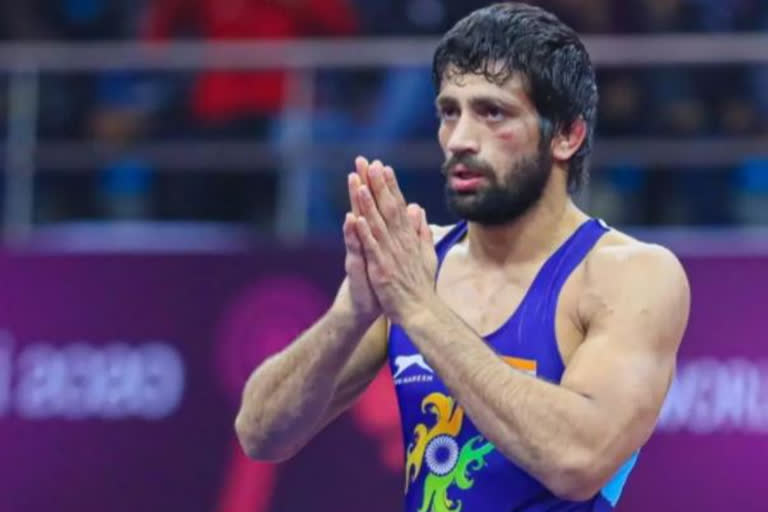Sonepat:Can the fortunes of a village be linked to the Olympic success of a wrestler? Well, at least the 15,000 odd people living in the Nahri village in Sonepat district think so.
A village that struggles to get potable drinking water, manages household work with just a two-hour electricity supply, does not have proper sewage lines and in the name of amenities has just one veterinary hospital to show, desperately wants Ravi Dahiya to return from Tokyo with a medal.
The quiet and shy Ravi, son of a farmer, is the third Olympian to emerge from this village after Mahavir Singh (1980 Moscow, 1984 Los Angeles) and Amit Dahiya (London 2012).
But why do the villagers think that Nahri's destiny will change if the 24-year-old Ravi wins a medal. Well, there is a small story behind it.
Read:Tokyo Olympics: Everything you need to know about India's badminton contingent
Mahavir Singh was asked by the then Chief Minister Chaudhary Devi Lal what was his wish after he represented the country twice at the Olympics and he requested an animal hospital in the village.
The CM obliged and a hospital was established.
The villagers now have a firm belief that if Ravi does well in Tokyo, Nahri will get some spotlight and the government could gift some development projects to the place, where 4000 families live.
"This village has given the country three Olympians. There is something in the soil of the land. We are sure Ravi will win a medal and with his success, the development of the village will also begin," said Sunil Kumar Dahiya, the Sarpanch of Nahri.
"There is no good hospital here. We have to go to Sonepat or Narela. There is no stadium. We have built a mini stadium but there is no mat, no academy, no coach. If there are facilities, the kids of this village can get better lives."
The villagers have pinned their development hopes on Ravi but his success has much to do with the sacrifices and moral guidance of one man, his father Rakesh Kumar Dahiya.
Rakesh has been toiling hard in the farm fields, taken on lease, for years and never let the struggles come in way of Ravi's training.
Rakesh will himself carry milk and butter to Chhatrasal Stadium, about 60kms away from Nahri, every single day without fail to ensure that his son gets the best diet.
Read:Olympic organisers announce 3 more Games-related COVID cases, none athlete
The routine means Rakesh would wake up 3:30 am, walk about 5kms to the nearest Railway station, get down at Azadpur and then walk another 2kms to the Chhatrasal Stadium, where Ravi trained under Mahabali Satpal.
After coming back, Rakesh would work in the fields and it continued for 12 years till the COVID-19 induced lockdown halted the routine in 2020.
Rakesh ensured that Ravi learns to respect the sacrifices his family has made. He narrated an incident when he made Ravi eat white butter that he had spilled on the floor by mistake.
